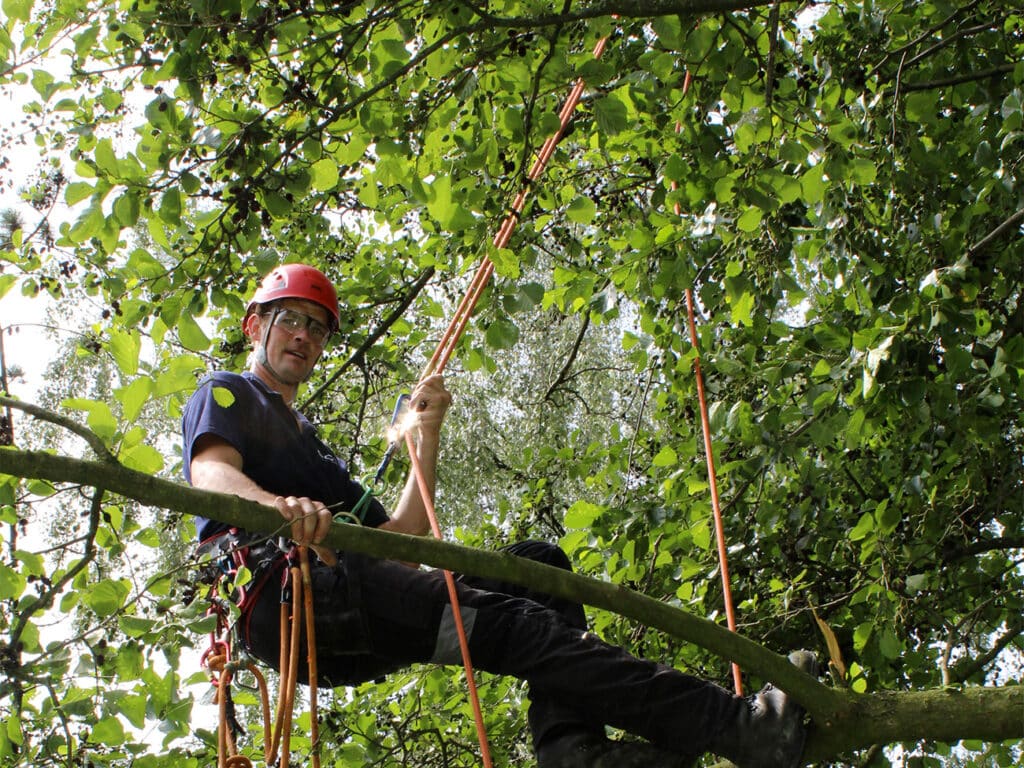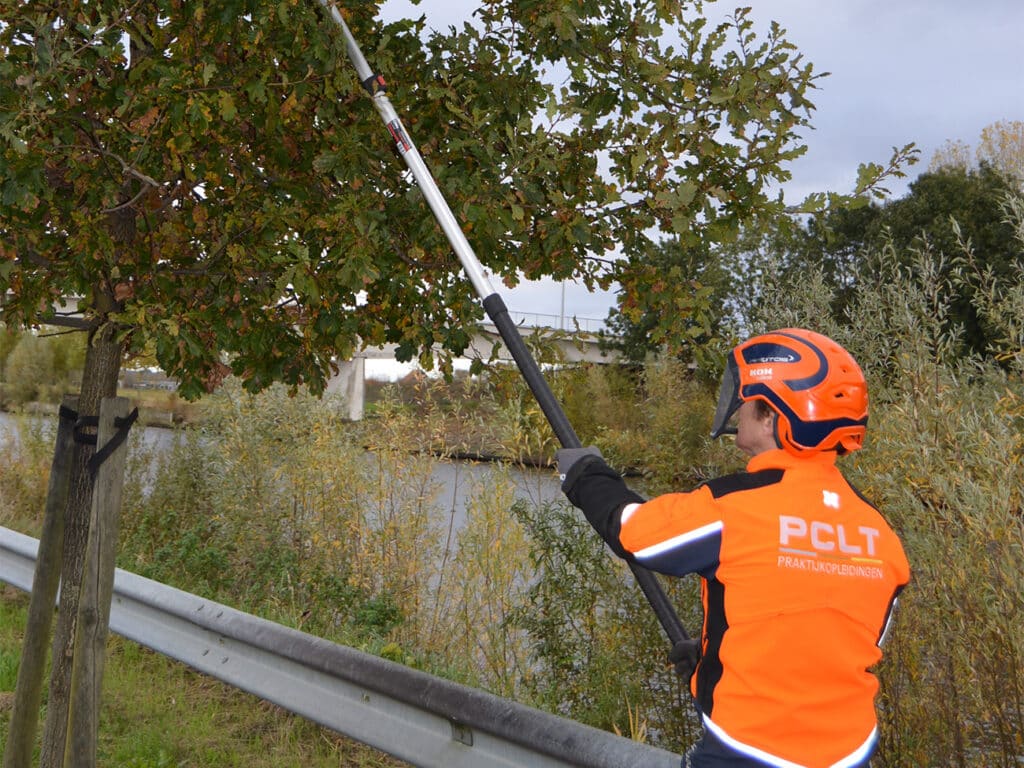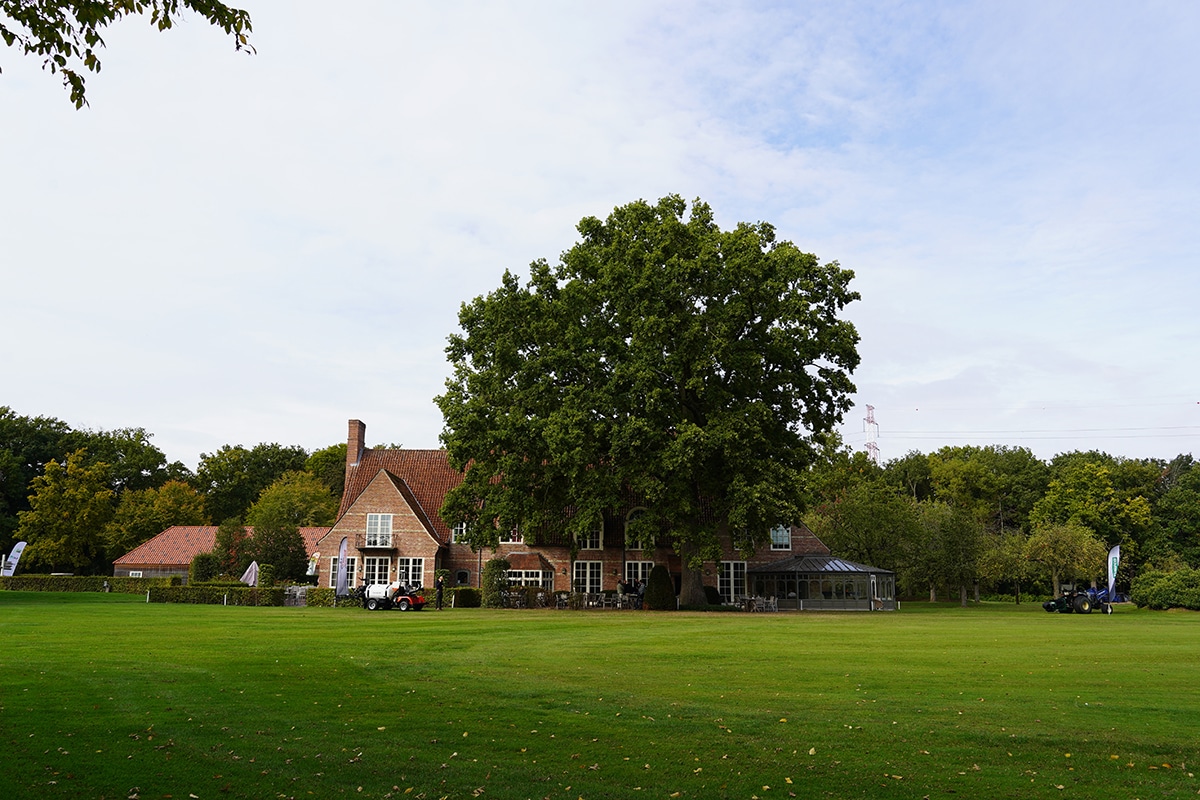
Complete Training European Tree Worker
From September 20, 2022 to October 7, 2023 you can follow the European Tree Worker training at the PCLT in Roeselare. A long-term commitment of one evening a week for a year, supplemented by several practical classes on Fridays and Saturdays, but immediately a complete preparation for the ever more important European Tree Worker certificate. "It is the only training of this kind in Belgium," Marc Ballekens emphasizes. The PCLT director explains what makes it so unique.
"The arborist profession has changed significantly over the past few decades," Ballekens begins. "Climate change is putting more and more pressure on our natural environment, requirements are becoming more stringent, and cities and municipalities are increasingly being looked to to lead by example. Today's arborist must therefore not only be able to present a solid theoretical knowledge of trees, various practical skills and rapidly evolving new techniques, but he must also be able to prove these things with a European Tree Worker (ETW) certificate for many assignments. That certificate counts throughout Europe as a proof of professionalism and tree care knowledge."
All in one
To sit for the independent ETW exam, in addition to a minimum of one year of experience as a professional arborist, you need above all a comprehensive and varied package of theoretical and practical knowledge.
"For many years, we have offered a wide range of training courses for arborists in the PCLT," Ballekens says. "Various modules covered in the ETW training therefore exist as separate courses. Sometimes these are day or weekly courses, others are organized only on demand. The advantage of the ETW training, however, is that everything is immediately combined into one comprehensive total package. So you can be sure that all relevant information is covered using the ETW standard as a guide, and you don't have to puzzle with different packages and class dates."

Much attention to tree management
A crucial part of the training program is a comprehensive module on tree management, focusing on tree species knowledge, stand improvement, planting and tree control, among other things. After all, Ballekens says, those issues have gained tremendous importance.
"In the past, for example, tree species selection was still a detail. You could select a tree purely on aesthetic properties and you could trust that it would thrive in most conditions. Today, the cards are very different. Due to climate change, ever-higher temperatures and increasingly extreme weather conditions, you have to think much more specifically about which trees are robust enough to survive dry summers, what precautions you can take when planting them, where exactly they should be located, and how you can arrange the growing site so that even in the city a long life is guaranteed. All that is covered in the training."
Safe and agile in the trees
The practical part of the ETW course focuses mainly on the technical and safety aspects of climbing and pruning. For example, there are extensive modules on rescue climbing and chainsaw use.
"Regarding the latter, training begins on ECS 3, particularly advanced felling techniques. Working with steering lines and reprocessing damaged and uprooted trees (ECS, live pruning of lying timber) are also covered. But of course that means we expect participants to have an ECS 1 and ECS 2 certificate. If they don't, they can take those courses in parallel with us."
Following the ETW training, the PCLT still offers the opportunity to take specializations around working with an aerial work platform or breaking down trees via capture techniques.
Practical
The European Tree Worker training will take place from September 20, 2022 to October 7, 2023 in Roeselare, each Tuesday evening. Occasionally a full day of classes will also be scheduled on Friday or Saturday. A total of 294 class hours are involved; the full schedule of classes can be viewed online. The registration fee is 4,300 euros, but the training is eligible for the kmo-portefeuille and the Flemish training leave. In addition, check with your sector fund for any additional financial assistance. Registration is possible until the maximum number of participants is reached.




